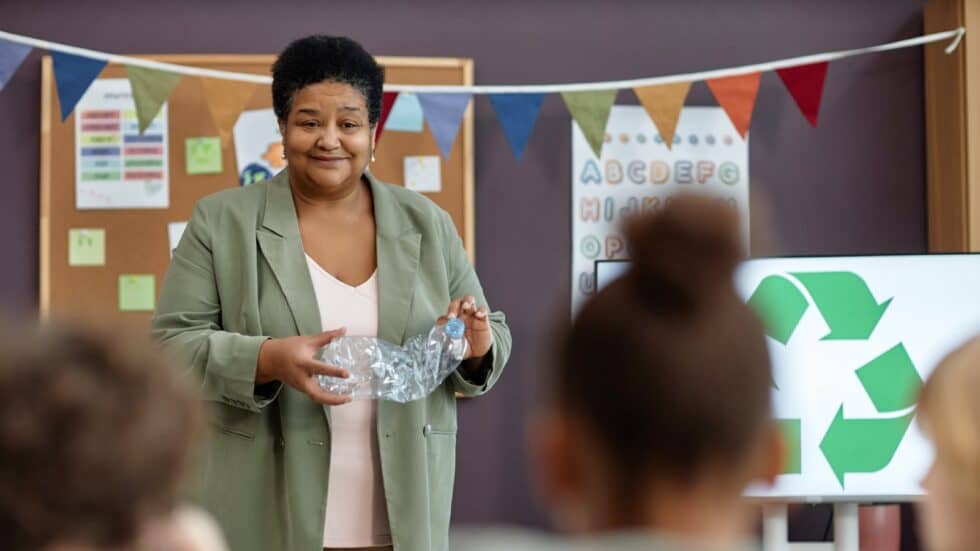Currently Empty: $0.00
The Ultimate Guide to Start a New Teaching Career
Embarking on a new teaching career can be both exhilarating and daunting, as it is one of the most challenging yet rewarding professions. That’s why we’ve created this comprehensive guide to help you navigate through every step of the journey towards becoming an accomplished educator.
From researching education requirements and obtaining necessary online teaching certification programs to mastering classroom management techniques and building strong relationships with your students – we’ve got you covered. Read on!

Steps to Starting a Teaching Career
A variation of online teaching certification courses are available and can vary depending on where you live. From state-accredited programs to specific courses for teachers in different subject areas, it’s important to understand what you need and what your options are when selecting a program.
Here we break down the steps to starting a teaching career:
Research Education Requirements
Embarking on a teaching career begins with understanding the educational requirements to become an effective educator. Acquiring the necessary qualifications is crucial for preparing you to take on classroom responsibilities and shape young minds.
Aspiring teachers typically need at least a bachelor’s degree from an accredited four-year college, often majoring in education studies or other related fields.
Researching these varying prerequisites will help you make informed decisions about pursuing a teaching career tailored to your desired location and subject area. For example, some states may require additional coursework or degrees for certain specialities such as special education or bilingual instruction.
Obtain Necessary Certifications
Obtaining the necessary certifications is a crucial step in launching your teaching career. Each state has its specific requirements, and it’s essential to know what these are before embarking on this professional journey.
Certifications typically involve completing an accredited teacher preparation program and passing relevant exams, such as the Praxis or other state-specific tests.
Online teaching certification programs can be a helpful option for aspiring educators seeking flexibility and convenience in earning their credentials. These programs allow you to work towards your certification while maintaining your current job or juggling family responsibilities, making them ideal for career-changers or busy individuals with limited time availability.
Choose Subject Area and Grade Level
Selecting the appropriate subject area and grade level is crucial in starting your teaching career. Your choice should align with your interests, skills, and passion, which will significantly impact your job satisfaction and effectiveness as an educator.
For example, if you have a strong background in math or science, consider specializing in these subjects.
In addition to choosing a subject area specialization, it’s equally important to determine the grade level at which you’d like to teach. Consider the age group of students that would best suit your teaching style – elementary school children require different approaches compared to high school students or adult learners.
Research online teaching certification programs for guidance on specific requirements for each subject matter and grade level combination.
Gain Classroom Experience
One of the most crucial steps towards becoming a successful teacher is gaining classroom experience. This involves actively participating in teaching practices, such as giving lessons, managing classrooms, and engaging with students.
It can be achieved through various means, including school volunteering or tutoring individual students.
During classroom experience, future teachers learn how to create lesson plans matching students’ abilities and needs. They also gain insights into different learning styles and strategies for effective class management.
Another benefit of classroom experience is building relationships with other educators and getting feedback on areas that need improvement before starting a full-time job in education.
Tips for Success in the Classroom
Developing strong relationships with students, staying organized, adapting teaching strategies, and prioritizing self-care are all crucial for success in the classroom. They can help you make the most of your teaching journey and thrive in this rewarding career.
Below are a few tips to get you started:
Develop Strong Relationships With Students
Developing strong relationships with students is one of the most important tasks for a new teacher. Positive student-teacher relationships promote a comfortable and safe learning environment where students feel valued, respected, and supported.
A good way to develop strong relationships with your students is by learning each student’s name, interests, strengths, weaknesses, and goals. This way you can tailor your teaching style and lessons based on their preferences which will help to create an emotional connection that enhances their engagement levels in class.
Stay Organized and Manage Time Effectively
Effective time management is crucial for teachers to maintain productivity and avoid stress. Staying organized can help them prioritize tasks, stay focused and avoid distractions.
To manage time effectively, create a daily to-do list outlining the tasks to be completed and their deadlines. It’s essential to identify which tasks are urgent and prioritize those first.
Organizational skills are critical in managing time well as it helps teachers streamline processes such as filing important documents, setting up meetings with parents or other staff members, and preparing lessons ahead of schedule so they can concentrate on teaching when students arrive.
A teacher who is well organized will have more energy during classroom instruction because they’re not stressing over uncompleted assignments or neglected paperwork. Also Read – Inclusivity: 7 Dynamic Ways Teachers Can Fight Discrimination
Adapt Teaching Strategies
Adapting teaching strategies is essential in ensuring student success in the classroom. Effective teachers are always looking for new, creative ways to engage their students and help them learn.
Adapting teaching strategies means using different methods based on individual student needs and learning styles. For example, a teacher may use visual aids or hands-on activities to help students who struggle with traditional lectures or reading assignments.
Research shows that an adaptive curriculum is crucial in improving student outcomes. A study by the National Research Council found that adaptive instructional materials can significantly improve learning outcomes compared to non-adaptive materials.
With so many resources available today, it has always been challenging for teachers to adapt their lessons and tailor instruction to meet individual student needs.
Prioritize Self-care
Prioritizing self-care may not seem obvious when starting a new teaching career, but it is crucial for long-term success. Teachers face high stress and burnout levels, which can lead to reduced effectiveness in the classroom.
One way to prioritize self-care is by setting boundaries between work and personal time. This can mean taking breaks throughout the day or limiting work-related activities outside of designated hours.
Other self-care strategies include exercise, meditation, getting enough sleep, and spending time with loved ones.
Conclusion
Starting a new teaching career can be both exciting and daunting. For instance, online teaching certification programs can help teachers gain the necessary qualifications for a successful career, and classroom experience provides valuable learning opportunities.
It is also important to develop strong relationships with students, stay organized, adapt teaching strategies, and prioritize self-care in order to succeed in the classroom. By following these tips, new teachers will be well on their way to having a successful teaching career that brings great satisfaction.
Contact us if you need more information on how to start a successful teaching career. We’d be happy to provide assistance!



